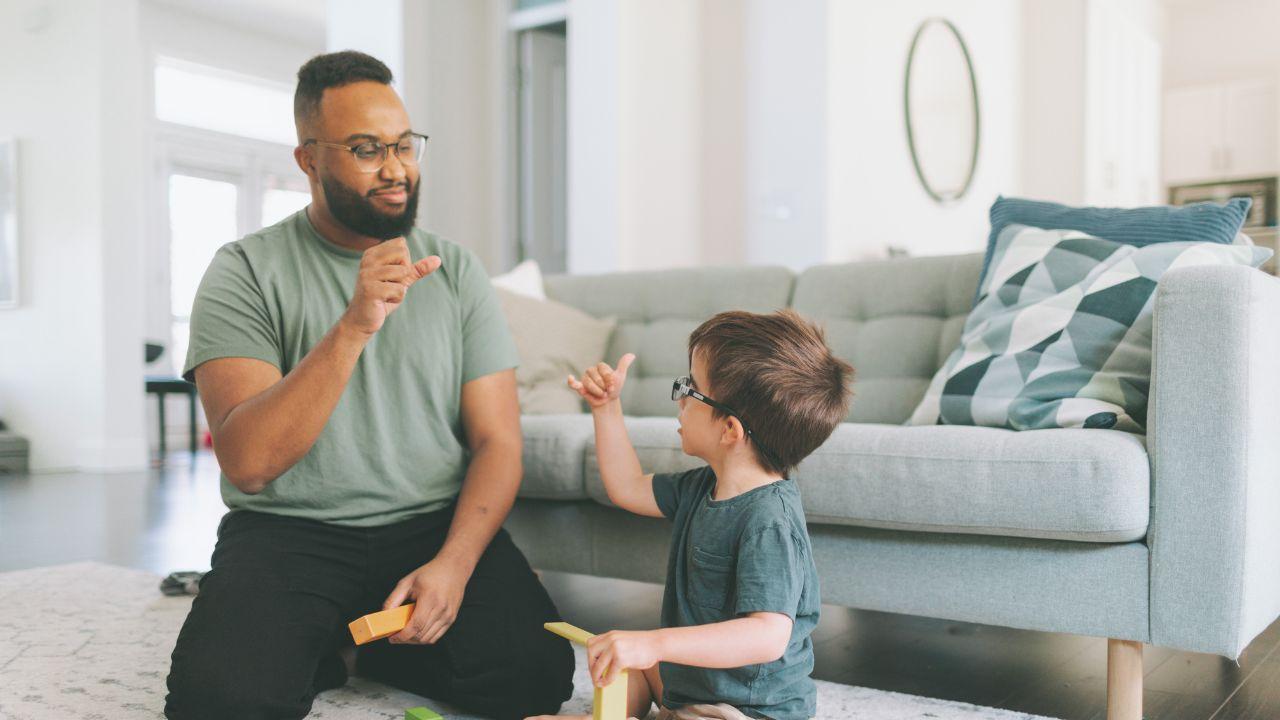
Post by : Layla Badr
Learning a second language is one of the best decisions you can make for your child's development. As children grow and experience the world, they are constantly exposed to new information and experiences. One of the most powerful ways to enhance their cognitive abilities and social skills is through acquiring a new language. Whether your child is starting language lessons in school or learning through extracurricular activities, mastering another language will have a profound impact on their brain, personal development, and future opportunities.
The brain is like a muscle that gets stronger the more it is exercised, and learning a second language provides one of the best workouts for it. When your child learns a new language, they are constantly practicing their memory. This is because language learning requires children to remember vocabulary, grammar rules, and sentence structures. Over time, recalling these new words and phrases strengthens the connections in their brain. Research has shown that bilingual children have better memory recall compared to their monolingual peers. The skills gained from this process help children remember important facts and figures in other subjects as well, including history, math, and science.
Bilingual children tend to have better problem-solving and critical-thinking abilities. This happens because mastering another language forces children to think in different ways. They must adapt to new rules and structures, which enhances their ability to reason and approach problems from multiple angles. Studies have shown that bilingual children are often better at puzzles, math problems, and other tasks that require creative thinking. Acquiring a second language strengthens the brain's cognitive flexibility, enabling children to switch between tasks or concepts easily. This mental flexibility is not only helpful in school but also in everyday life as children face various challenges and decisions.
Learning a second language also helps improve concentration and multitasking abilities. To understand and use a new language, children need to focus and pay attention to different elements, such as sentence structure, pronunciation, and vocabulary. This concentration on a new language helps strengthen their ability to focus on tasks and avoid distractions. Bilingual children are often able to concentrate on a specific task for longer periods. Additionally, because learning a second language involves switching between languages, children develop stronger multitasking skills. This ability to juggle multiple tasks at once can be incredibly helpful in their daily lives, whether they’re working on school projects or managing different activities.
One of the most valuable benefits of learning a second language is the development of stronger social skills. Bilingual children can communicate with a wider range of people, both locally and globally. Being able to speak another language opens doors for your child to interact with peers from different cultural backgrounds, helping them build friendships and understand diverse perspectives. This fosters empathy, as they learn to appreciate the thoughts, values, and traditions of others. Moreover, children who speak more than one language are often more open-minded and better at adjusting to new social situations. Learning a second language helps children navigate cultural differences, making them more adaptable in various social contexts.
Another significant benefit of learning a second language is that it exposes children to different cultures and worldviews. When children learn a new language, they don't just learn how to speak differently—they also gain a deeper understanding of the people who speak that language. This increased cultural awareness helps children develop a broader, more inclusive worldview. In today’s globalized world, this ability to understand and connect with people from different cultures is an invaluable skill. Whether they are travelling abroad, meeting new friends, or working in a multinational environment, bilingual children are better prepared to succeed in a diverse world.
Learning a second language is not just beneficial for cognitive and social development; it also plays a significant role in academic success. Research has shown that bilingual children often perform better in standardized tests, particularly in subjects like reading, writing, and math. This is because the skills learned through mastering a new language—such as problem-solving, multitasking, and focus—help children excel in other areas of study. Furthermore, learning a second language enhances a child's ability to learn additional languages later on. As children become familiar with the structure and mechanics of one language, it becomes easier for them to learn other languages in the future. This linguistic advantage will benefit them throughout their academic journey.
In addition to academic success, learning a second language opens up numerous career opportunities. As the world becomes more interconnected, businesses are increasingly looking for employees who can communicate in multiple languages. Being bilingual can give your child a competitive edge in the job market, whether they want to work in international relations, tourism, or technology. A second language can also increase your child’s chances of landing a job abroad or working with international companies. Beyond work, the ability to speak another language makes it easier for your child to travel, understand different cultures, and connect with people across the world.
Another unexpected benefit of learning a second language is that it helps improve decision-making and time-management skills. When learning a new language, children need to make constant decisions about which words and phrases to use. This encourages quick thinking and better decision-making in everyday life. Additionally, learning a second language often involves setting goals, practicing regularly, and meeting deadlines, which enhances time management skills. These skills are vital not just for academic success but also for personal and professional growth in the future.
Learning a second language offers numerous benefits for children, including improved memory, enhanced problem-solving skills, stronger social abilities, and better academic performance. It fosters cultural awareness, and empathy, and prepares kids for global opportunities in their future careers. By boosting brain power and equipping them with life-long skills, learning a new language shapes children into well-rounded, adaptable individuals. Parents are encouraged to support their children in this enriching journey that combines cognitive, social, and academic growth.
This article is published by DXB News Network for informational purposes only. While every effort is made to ensure accuracy, readers are advised to consult education professionals or language experts for personalized guidance. DXB News Network is not responsible for any decisions made based on the content of this article.
#trending #latest #LanguageLearning #BilingualKids #BrainBoost #ChildDevelopment #LearnLanguages #CulturalAwareness #FutureSkills #LanguageForKids #BilingualBenefits #GlobalSuccess #headlines #topstories #globalUpdate #dxbnewsnetwork #dxbnews #dxbdnn #dxbnewsnetworkdnn #bestnewschanneldubai #bestnewschannelUAE #bestnewschannelabudhabi #bestnewschannelajman #bestnewschannelofdubai #popularnewschanneldubai










Sheikh Mansour Arrives in Kuwait to Boost UAE-Kuwait Relations
Sheikh Mansour arrives in Kuwait for an official visit to meet the Emir, aiming to strengthen UAE-Ku

Story :The Merchant of Manchester - by Dr Amrinder Pal Singh
Story of loss, Kindness, Betrayal… and Legacy

Rashid Al Obad Appointed Director General of Shams
Sheikh Sultan issues Emiri Decree appointing Rashid Al Obad as Director General of Sharjah Media Cit

Dubai’s Government Best Practices Series 2025 Highlights Innovation
The Government Best Practices Series 2025 in Dubai focused on government innovation, digital service

Dubai Hosts GenAI Masterclass for Future Family Leaders
Dubai Centre for Family Businesses held a GenAI masterclass to train 24 young leaders in using AI fo

ArtDomain by DXB News Network Opens to Strong Global Response — Applications Begin for A50 and The Art Guild.
ArtDomain by DXB News Network Opens to Strong Global Response — Applications Begin for A50 and The A

Dembele's Goal Gives PSG a 1-0 Win Over Arsenal in Semi-final
Ousmane Dembele scores early to give PSG a 1-0 win over Arsenal in their Champions League semi-final